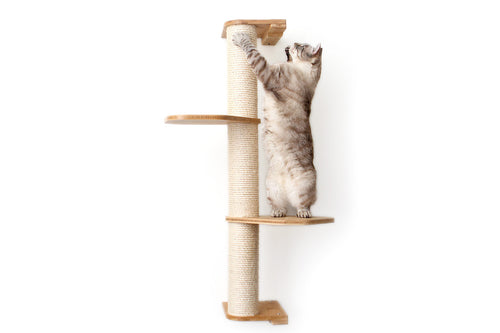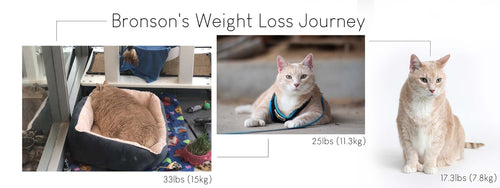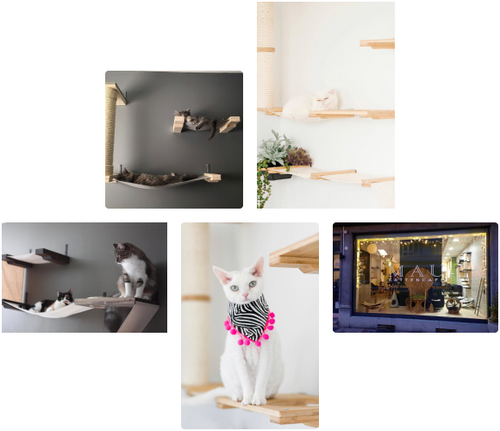Socialization is the accumulation of good experiences that help build a cat who feels confident and at ease in the world they live. The process starts when cats are very young and will continue to some extent throughout a cat’s life. Increased early socialization is associated with a decreased fear, aggression, less stress, and adaptability to novel environments. Depending on what age your cat is there are different things you can do to help build a resilient and happy cat.
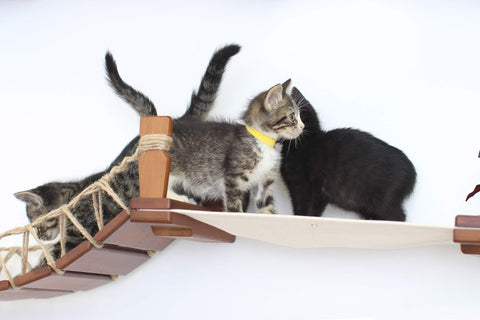
Socializing Your Cat
Very young animals have sensitive windows where their brains are especially “sticky” to learn new information. For cats they learn what types of animals are in their social groups from around 3 to 9 weeks of age. In this window, your kitten will learn people, children, and other animals are good if they have good experiences with them. Most of us will not have a cat before 7 to 8 weeks.
- Note: getting your kitten vaccinated prior to meeting other animals is important to protect from infectious disease. They are actually born with maternal antibodies that will protect them very early, however that shield will fade soon after birth and vaccinations will be your protection into adulthood. Take caution introducing your kitten to dogs and cats with unknown behavior, undermined vaccine and infectious disease status. These risks should be managed and with the guidance of your veterinarian you can safely incorporate socialization.
One of the most common mistakes in socialization is over exposure or overwhelming. In this case more is not better, its quality experience you want to foster. The key to building a confident cat is to make sure each experience they are having fun. They are recording everything at this point, everything needs to be better than neutral to have the effect we want in adulthood. Try to provide your cat with a safe place at all times during new exposures, the option to leave will actually make them braver. A box, a safe person nearby, high places, or tunnels can all act as a safety net. The key to training good experiences will be paring food or toys with new experiences. This process will continue into adulthood.
Promoting Social Behavior
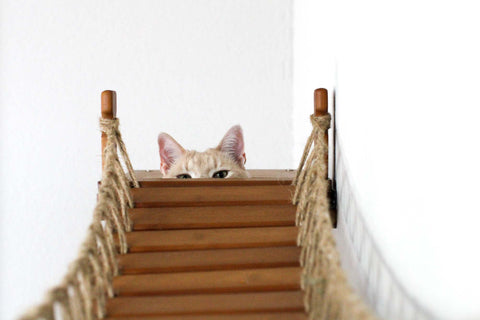
Environmental
- Novel surfaces, paper, metal, grass, carpet, moving surfaces
- Veterinary care and happy vet visit (including scale, exam table, handling, restraint)
- Crate training
- Exploring outside on a harness
- Home sounds (opening doors, using different tools, cleaning, working, music)
- Visiting places like friends homes, groomers, etc.
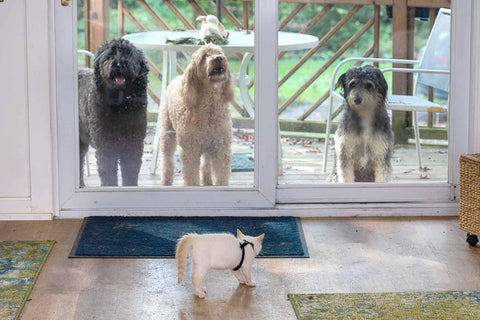
Who is safe
- Vaccinated and friendly cats
- Other animals like calm friendly dogs (supervised and never allow cats to crawl on dogs etc.)
- Farm animals at a distance
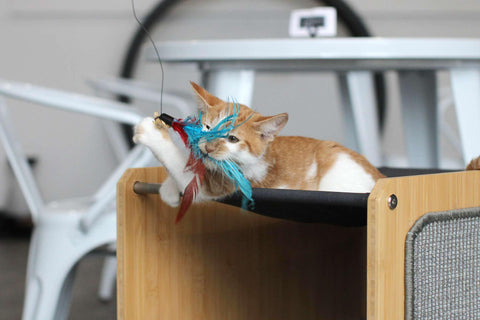
Other Good Ideas
People coming over- Car rides
- Being gently held by sitting person
- Tooth brushing
- Nails clipped
- Playing with novel toys
- Brushing and cleaning
- Water and bathing
If your cat has missed this early socialization window, they can struggle life long with changes and new people. You can still carefully pair food, petting, and toys with people or animals you want them to have positive relationships with. Keep your cat feeling safe at all times, use enrichment, positive reinforcement training to help build confidence.
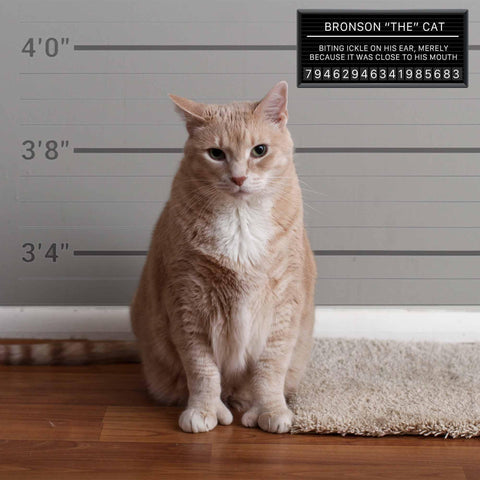
Even a wild or feral cat can learn to like one or two people over time, however be prepared to keep their world small. Be very patient with your feline companions, go slow, make the process peaceful for everyone involved. There are no wrong behaviors, just inconvenient to us. There is always a solution that builds trust and will make desired behaviors more prevalent using positive reinforcement training.
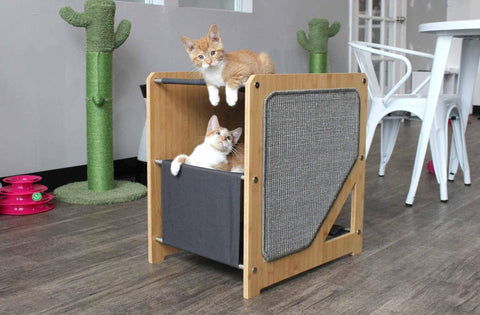
Early Socialization
- American Veterinary Medical Association, "Socialization of dogs and cats" article
Stress in cats that missed socialization
- Preventive Vet, "Cat Stress: Causes and Solutions" article



